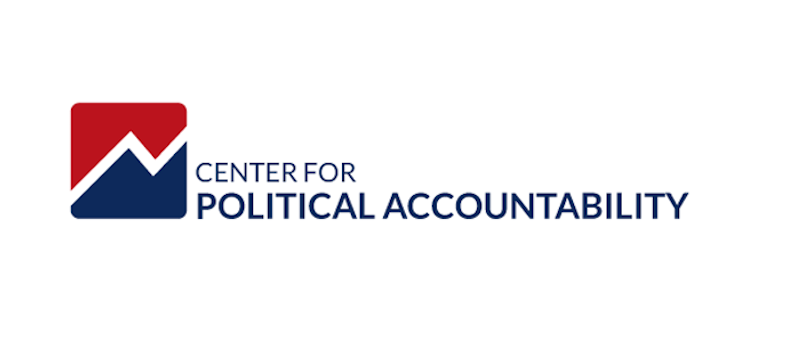The Center for Political Accountability (CPA) and the Zicklin Center for Business Ethics Research have released the 2016 edition of their annual study of corporate disclosure policies regarding contributions to advocacy groups and trade associations. As in previous years, CPA-Zicklin acts as a wolf in sheep’s clothing, framing their concerns in terms of shareholder value when their true intention is to stop corporations from exercising their First Amendment right to voice support for candidates and causes. Managers and board members should not feel pressure to comply with the demands of these activists, and commentators should think twice before jumping on the CPA-Zicklin bandwagon.
First, corporate political speech is not as controversial as these activists suggest. Polling demonstrates that the public supports business involvement in public policy. Americans expect companies to advocate for policies that protect their employees’ jobs, reduce costs to consumers, and spur technological innovation and growth. This makes a lot of sense – if, for example, a new minimum wage law is being considered, the public should hear from businesses that have first-hand knowledge and expertise about the effects of these policies.
But businesses, and particularly large publicly-traded corporations, are remarkably risk averse. If they take a stand on anything, they know that they may upset some customers, stirring up opposition from their political adversaries, and potentially aggravating activists who have been known to protest, boycott, and generally tarnish companies’ reputations for their stances.
So how can companies express their opinions on issues and opinions that the public wants to hear and benefits from hearing, without being shamed and harassed by activists? They can donate to advocacy groups and trade associations that maintain donor privacy and whose mission generally aligns with a given business’s interests.
This system is good for democracy, beneficial to public knowledge, and valuable for businesses and their shareholders. Academic research has, in fact, borne this out. But for activists looking to stop pro-business opinions from entering the public debate, this outlet for private support of advocacy groups poses a problem.
Enter the 2016 CPA-Zicklin Index. Funded in part by unions, the Index is intent on breaking this system of private support for nonprofits that share a business’s particular values and interests.
The plan is your basic carrot and stick – advertise high scores on the Index as good business practices, reward companies with positive branding (the Index gives top scoring companies the title “Trendsetter”), and implicitly threaten poorly ranked groups to stop spending or continue having their reputation besmirched. The Index rewards restrictions on corporate giving to advocacy nonprofits and trade associations right alongside “best disclosure practices,” and not so subtly warns that “today’s highly partisan political environment and 24/7 viral social media outlets only magnify and intensify the risks associated with corporate political spending.”
It’s crucial to remember that we are not talking about direct corporate giving to campaigns – for federal campaigns, corporations are already banned from direct political giving to candidates, political parties, and PACs. Contributions to “Super PACs” are already disclosed. And in states that allow corporate contributions in state races, they are already disclosed. What the Index is really after, then, is what it calls “indirect political spending.” That is giving to nonprofits and trade associations that are engaging with public policy, and its occasional, but inevitable, mix with politics. Despite claims that this spending is “flooding” the political process, actual political spending from these groups accounts for less than 5% of all political spending on the federal level and has been steadily decreasing as a percentage of overall spending each successive election cycle.
The CPA-Zicklin Index, and its supporters, are not concerned with good corporate practices. They support policies cleverly designed to suppress the speech of businesses. Indeed, in Charles Kolb’s Foreword to the 2016 Index, the creators of the publication tip their hand: “The 2016 CPA-Zicklin Index of Corporate Political Disclosure and Accountability, the sixth survey conducted since 2011, depicts a strong and growing trend among S&P 500 companies that are placing restrictions on political spending, devising clear policies to govern such spending, and enhancing board oversight of public company engagement in the political process. This development is excellent news for our political system, and it is also excellent news for the many opponents of crony capitalism.” (Emphasis added.)
Note the phrase “placing restrictions on political spending” alongside increased transparency measures like clearer policies and enhanced board oversight as a positive trend. To the publishers of the Index, corporate silence is just as good as corporate ‘transparency.’ In the very next sentence, the Index cites political outcomes (“excellent news for our political system”, “excellent news for the many opponents of crony capitalism”) rather than increased shareholder value as the reason these trends are worth celebrating.
If the Center for Political Accountability and the Zicklin Center want to speak loudly in support of the policies they prefer, the Center for Competitive Politics fully supports their efforts. Unfortunately, they’ve chosen to shut down debate by shaming companies into abstaining from supporting the causes they believe in. This shame game is bad for business, but much more importantly, it’s bad for the public who wants and deserves to hear from all sides in policy debates.














